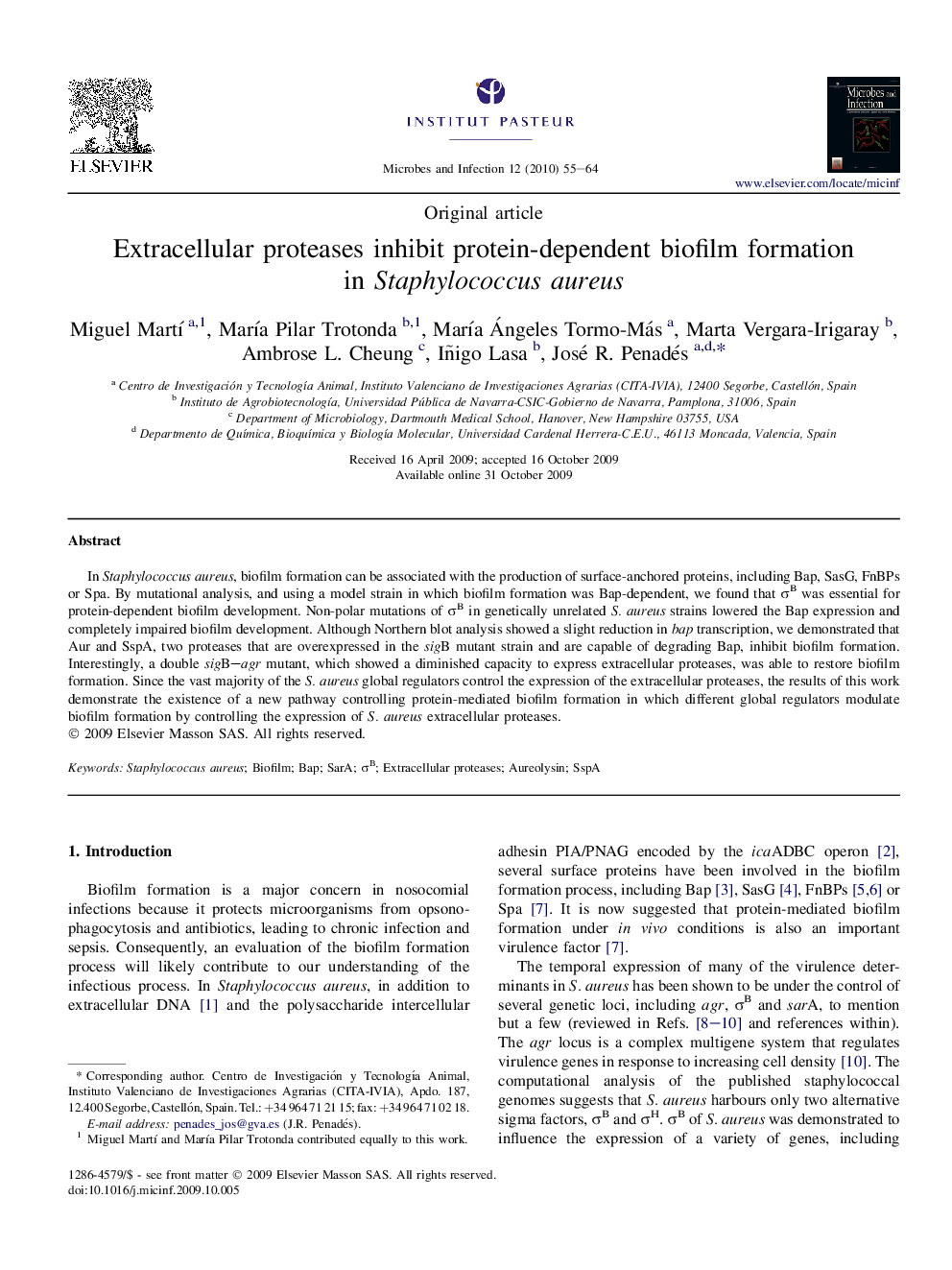| Article ID | Journal | Published Year | Pages | File Type |
|---|---|---|---|---|
| 3415430 | Microbes and Infection | 2010 | 10 Pages |
In Staphylococcus aureus, biofilm formation can be associated with the production of surface-anchored proteins, including Bap, SasG, FnBPs or Spa. By mutational analysis, and using a model strain in which biofilm formation was Bap-dependent, we found that σB was essential for protein-dependent biofilm development. Non-polar mutations of σB in genetically unrelated S. aureus strains lowered the Bap expression and completely impaired biofilm development. Although Northern blot analysis showed a slight reduction in bap transcription, we demonstrated that Aur and SspA, two proteases that are overexpressed in the sigB mutant strain and are capable of degrading Bap, inhibit biofilm formation. Interestingly, a double sigB–agr mutant, which showed a diminished capacity to express extracellular proteases, was able to restore biofilm formation. Since the vast majority of the S. aureus global regulators control the expression of the extracellular proteases, the results of this work demonstrate the existence of a new pathway controlling protein-mediated biofilm formation in which different global regulators modulate biofilm formation by controlling the expression of S. aureus extracellular proteases.
